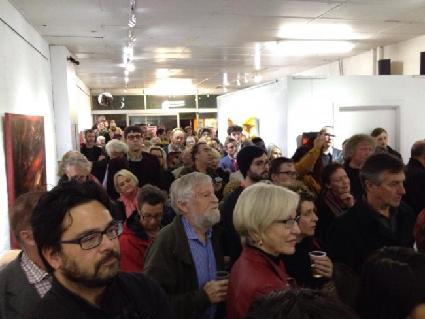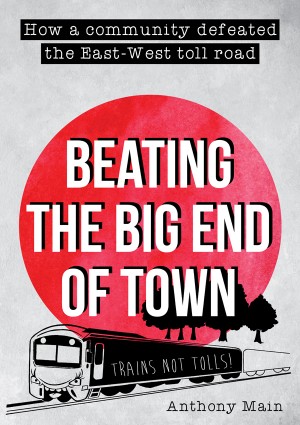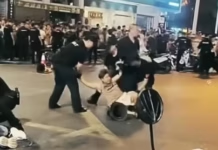How a community defeated the East-West toll road
Chris Dite, Socialist Party (CWI Australia)
The East-West toll road was going to be one of the largest infrastructure projects in Australian history. Its defeat – and the Napthine government’s simultaneous fall from power – defined the 2014 state election and undoubtedly altered the course of Victoria’s future.
But how did a multi-billion dollar infrastructure project – supported and promoted by the major parties, big business and the media – come to be seen by Victorians as a despised project that had to be stopped? This is the question media commentators and establishment politicians – many of them previous supporters of the East West toll road – have been trying unconvincingly to answer in the months since the election.

Socialist Party writer Anthony Main was one of the main leaders of the community pickets against the project. His new book ‘Beating the big end of town: How a Community defeated the East-West toll road’ provides the strongest answer yet to this question.
Tracing the community campaign against the East-West toll road from its modest beginnings to its dramatic heights and hard won victory, Main provides a colourful account of the forces at play within and without the campaign, the victories and setbacks that defined it, and the politics that competed for strategic dominance of the campaign’s direction.
More than simply a blow-by-blow description of events as they unfolded, ‘Beating the big end of town’ puts the dispute firmly in the political and economic context of contemporary Australia. Big business, with its relentless pursuit of profits, absolutely dominates politics in this worldview, making and influencing decisions against the interests of ordinary people.
Situating the growing campaign against this backdrop became a crucial task for the Socialist Party. Successfully doing this at key junctures opened the door for some of the strategies that would ultimately see the campaign succeed. Not least among these was an orientation towards working class people across the state. Ordinary people were set to lose out big from the East-West Link but were hearing the exact opposite from the entire establishment. The support of these people – either for the toll road or for public transport – would ultimately determine the campaign’s outcome.
Aside from the dramatic scenes on the picket lines, this debate around strategy is where Main’s take on events is most compelling. Victory was never a given. Had the different strategies put forward at various points in the campaign been adopted – an electoralist focus, an orientation towards politicians rather than ordinary people, a pro-Labor Party position – the outcome would have been quite different.
This book is more than just an account of a dispute. Its analysis will be useful for any socialists, environmental activists or community campaigners wondering how to successfully fight back against what can seem like insurmountable odds. Its key lesson is that this fight back cannot ignore politics or the economic realities of neoliberalism and austerity.
This lesson might have previously seemed abstract to young people who did not have many successful examples of community victories to point to. In the context of this dramatic win of ordinary people against the establishment this lesson is very real.
Examples of successful community campaigns on this scale are few and far between in today’s world. For this reason the defeat of the East-West toll road by a community must be analysed and learnt from. The self-promoting and blatantly false version of events that have come from Labor politicians will not shed much light on things. To find out how it was done, start with ‘Beating the big end of town’ instead.
Copies of ‘Beating the big end of town: How a community defeated the East-West toll road’, By Anthony Main, published by the Socialist Party and available on line HERE.




